Unleashing the Power of Artificial Intelligence for Improved Diagnostics and Treatment Plans
AI has the potential to revolutionize healthcare by improving patient care, efficiency, and accuracy. With advanced algorithms and machine learning techniques, AI can analyze vast amounts of patient data in record time. AI-powered systems can detect subtle patterns that might elude human observers. By leveraging AI technology, healthcare professionals can make more informed decisions about patient care. AI technology can also streamline the development of treatment plans for patients. Read more!
Artificial intelligence (AI) is poised to unleash its immense power in the field of healthcare, revolutionizing diagnostics and treatment plans. By harnessing the capabilities of AI, healthcare organizations can enhance patient care, improve efficiency, and make more accurate diagnoses.
Further, in today’s fast-paced world, medical professionals face numerous challenges when it comes to diagnosing diseases and creating effective treatment plans. The sheer volume of data available can be overwhelming for even the most experienced physician or specialist. This is where AI steps in as a game-changer.
With advanced algorithms and machine learning techniques at its disposal, AI has the potential to analyze vast amounts of patient data in record time. It can process complex images such as X-rays or MRI scans with unparalleled accuracy. By leveraging neural networks and deep learning models developed by experts in healthcare software development studios, AI-powered systems can detect subtle patterns that might elude human observers.
Let’s have a detailed look at the power of artificial intelligence for improved diagnostics and treatment plans.
Table of contents
- A Brief Explanation of AI and its Potential in Healthcare
- The Power of AI in Diagnostics and Treatment Plans
- Current Machine Learning (ML) Techniques & Artificial Intelligence (AI) Algorithms
- How Can AI Analyze Medical Images and Identify Abnormalities?
- Examples of AI-Powered Diagnostic Tools
- Features of ML Techniques & Artificial Intelligence Algorithms
- Challenges and Limitations of AI in Healthcare
- Takeaway
- FAQs

A Brief Explanation of AI and its Potential in Healthcare
Artificial intelligence (AI) has emerged as a powerful tool in the healthcare industry, offering immense potential for improved diagnostics and treatment plans.
At its core, AI is the development of computer systems that can perform tasks without explicit human instruction. These systems are designed to mimic human intelligence by analyzing vast amounts of data, detecting patterns, and making decisions based on predefined algorithms. In medical settings, AI-powered technologies can process complex information from various sources such as patient records, lab results, images or scans to support accurate diagnosis and treatment planning.
One key area where AI shows significant promise is in diagnostics. Traditional methods of diagnosing diseases often rely on subjective analysis by healthcare professionals who have limited time available for each case due to high patient volumes. With intelligent algorithms and deep learning networks powered by AI technology at their disposal though this burden could be significantly reduced saving them valuable time they could focus on other important aspects for patients not only improving quality but also making quicker decisions which would reflect positively.
Furthermore, AI applications enable greater precision in image interpretation. Healthcare software developers, such as Chudovo, are increasingly using neural networks that have been trained with large datasets containing diverse medical images allowing them to recognize subtle patterns indicative disease states more accurately than ever before. This holds great promise especially when it comes to challenging diagnoses such as cancer where early intervention is essential improving survival rates.
In addition, mobile apps leveraging machine learning techniques empower individuals to monitor their own health conditions enabling real-time insights into vital signs. The disease progression lifestyle changes needed to achieve optimal wellness that reduce reliance solely on physician expertise thus lowering costs and expanding access to patients in remote areas.
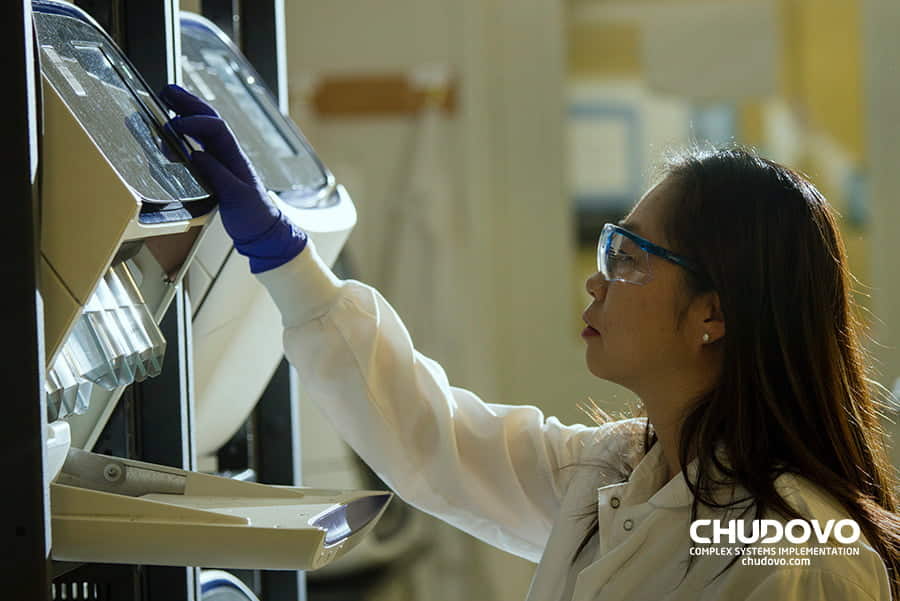
The Power of AI in Diagnostics and Treatment Plans
Artificial intelligence (AI) has the potential to greatly enhance the accuracy of diagnostics and treatment plans in healthcare organizations. By leveraging AI technology, healthcare professionals can make more informed decisions about patient care, leading to improved patient outcomes.
One of the key importance of AI in diagnostics is its ability to analyze large amounts of data quickly and accurately. Traditional diagnostic methods often rely on human interpretation, which can be subjective and prone to errors. However, with AI-powered algorithms and machine learning techniques, medical images and test results can be analyzed with greater precision.
AI also has the potential to support disease detection at an early stage. By utilizing neural networks that are trained on vast amounts of data from previous cases, AI systems can identify patterns or anomalies that might not be easily detectable by a human mind alone. This could lead to earlier intervention and better chances for successful treatment.
In addition to improving diagnosis accuracy, AI technology can also streamline the development of treatment plans for patients. Through advanced analysis techniques and predictive modeling capabilities, healthcare professionals can generate personalized treatment plans based on individual patient characteristics such as medical history, genetic information or lifestyle factors.
Furthermore, AI-powered monitoring systems have shown great promise in enhancing post-treatment monitoring effectiveness while reducing costs. By continuously analyzing patient data collected through wearable devices or remote monitoring systems, these intelligent technologies enable timely intervention when necessary, leading both faster recovery times as well as providing overall cost savings for healthcare organizations.

Current Machine Learning (ML) Techniques & Artificial Intelligence (AI) Algorithms
In the rapidly evolving field of healthcare, the integration of AI-driven tools is revolutionizing the way medical diagnostics and treatment plans are developed. With the potential to enhance accuracy, efficiency, and personalized care, artificial intelligence is paving the way for innovative solutions in the healthcare industry. Let’s delve into the diverse range of ML techniques and AI algorithms that are transforming the landscape of diagnosis and treatment.
Boltzmann Machine
One of the prominent ML techniques in healthcare is the Boltzmann machine. This deep-learning algorithm analyzes complex patterns and relationships within patient data, enabling the diagnosis of various diseases and predicting treatment outcomes. By providing healthcare providers with valuable insights, the Boltzmann machine facilitates more informed decision-making.
K Algorithm
K nearest neighbor (KNN) algorithms play a crucial role in medical image analysis. With the ability to compare new images to labeled examples, KNN algorithms classify different tissues and detect anomalies, empowering radiologists to make accurate diagnoses and aid in disease identification.
Recurrent Neural Networks (RNNs)
For analyzing patient data over time and spotting patterns, recurrent neural networks (RNNs) are highly effective. RNNs are instrumental in disease progression forecasting, monitoring vital signs, and analyzing patient behavior through time-series data. By harnessing the power of RNNs, healthcare professionals can make personalized treatment decisions based on valuable insights.
Support Vector Machine (SVM)
Another significant AI algorithm in medical diagnostics is the support vector machine (SVM). This algorithm accurately evaluates and classifies medical images, distinguishing between healthy and disease-stricken tissues. By taking various clinical parameters into account, SVM assists in disease classification and predicts how patients may respond to specific treatments.
Convolutional Neural Networks (CNNs)
Convolutional neural networks (CNNs) are extensively utilized in medical images, offering rapid tumor detection, image segmentation, and disease classification. Through their ability to analyze and extract features from medical images, CNNs contribute to more precise diagnoses, treatment planning, and monitoring of various medical conditions.
Long Short-Term Memory (LSTM) Algorithm
Long short-term memory (LSTM) networks are neural networks used for processing time-series patient data. By identifying long-term dependencies and patterns, LSTMs aid in predicting disease progression, patient outcomes, and support personalized treatment decisions. Their application is invaluable in optimizing healthcare strategies.
Generative Adversarial Networks (GANs)
Generative adversarial networks (GANs) deserve a special mention for their ability to generate synthetic medical images. These images can be utilized for research or training purposes, such as training diagnostic models or augmenting limited datasets. GANs pave the way for improved efficiency and accuracy in medical imaging.
These ML techniques and AI algorithms are transforming diagnosis and treatment plans, leading the way toward improved patient outcomes and personalized medicine. AI-powered tools facilitate early disease detection by analyzing complex medical data and identifying patterns that are difficult for the human eye to detect.
Furthermore, AI enables precision medicine by processing patient data, including DNA, medical history, and family medical history, to create unique treatments and protocols for various diseases. This has the potential to revolutionize healthcare, making personalized treatments more accessible and cost-effective.
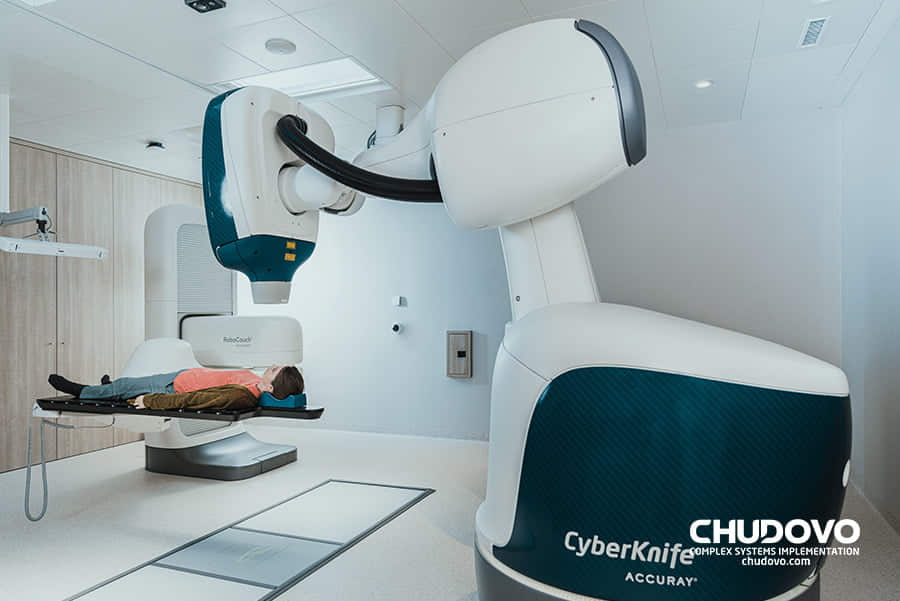
How Can AI Analyze Medical Images and Identify Abnormalities?
Medical imaging analysis is another area where AI demonstrates its power in identifying abnormalities. Deep learning models and computer vision algorithms evaluate medical images, such as MRIs, X-rays, and CT scans, enabling the detection and diagnosis of various conditions. AI-powered systems can aid in the analysis of tissue scans for diseases like cancer, leading to early detection and improved patient outcomes.
Predictive analytics is a notable application of AI in healthcare, as it can process vast amounts of data to identify potential risk factors and forecast the likelihood of developing specific diseases. By utilizing this information, healthcare professionals can implement preventive measures or initiate early treatment, saving lives and reducing the impact of severe conditions.
Optimizing treatment plans is another area where AI excels. By processing extensive patient data and medical literature, AI algorithms can identify abnormalities and devise personalized care plans for patients. This empowers healthcare providers to offer more effective treatments, ensuring better patient outcomes.
Implementing AI in healthcare diagnostics offers numerous benefits. Improved accuracy in diagnosis and timely conclusions are possible through AI-powered algorithms, reducing the risk of misdiagnoses and medical errors. Consequently, healthcare professionals can make well-informed decisions and develop personalized treatment plans, optimizing resources and improving patient care.
AI-powered clinical diagnostics also serve as a powerful decision-support tool, offering evidence-based treatment recommendations and best practices based on patient data and medical literature. This empowers healthcare professionals to make informed decisions and provide optimal care.
Furthermore, AI-driven virtual assistance and telemedicine platforms can bridge the gap in access to medical expertise, enabling remote consultations with experts from anywhere in the world. This empowers patients to receive expert opinions and diagnoses, regardless of their geographical location.
In addition, AI contributes to time and cost savings in healthcare by automating administrative tasks such as medical coding, data entry, and appointment scheduling. This allows healthcare workers to focus more on direct patient care, improving efficiency and optimizing resource allocation.
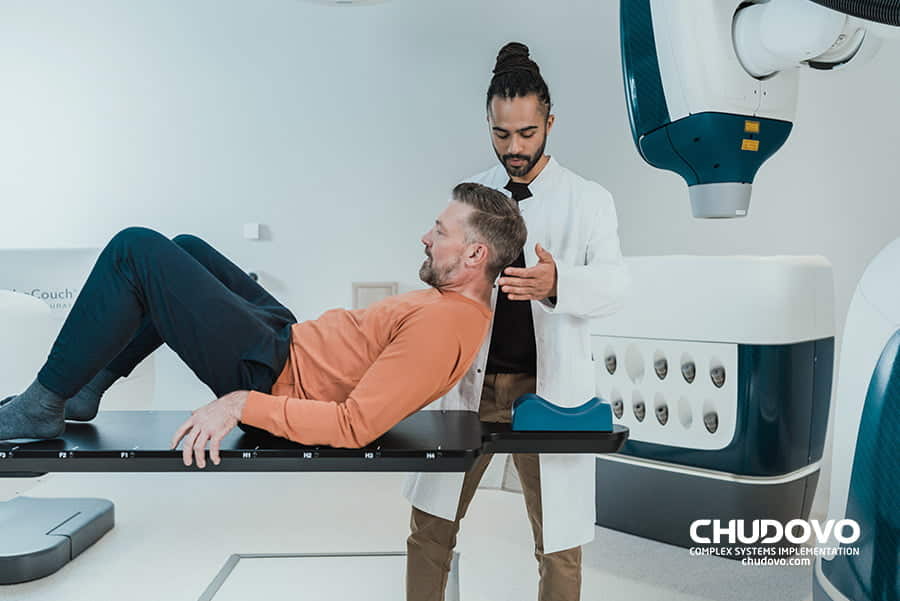
Examples of AI-Powered Diagnostic Tools
One example of AI-powered diagnostic tools is machine learning algorithms. These algorithms use vast amounts of data to identify patterns and make predictions with minimal human intervention. By analyzing medical images or patient data, these algorithms can provide support to healthcare professionals in making accurate diagnoses and developing effective treatment plans.
Neural networks are another example of AI technology that can greatly contribute to diagnostics and treatment planning. These complex systems are designed to mimic the functioning of the human brain, enabling them to learn from experience and adjust their behavior accordingly. Neural networks excel at detecting subtle patterns in large datasets, allowing them to identify potential risks or abnormalities that may not be apparent through traditional means.
By leveraging these advanced technologies, healthcare organizations can save valuable time when it comes to diagnosing patients accurately. In many cases, doctors have limited time with each patient due to high demand for their expertise. However, utilizing AI-powered diagnostic tools such as machine learning algorithms or neural networks could help overcome this challenge by automating certain aspects of the diagnosis process while providing comprehensive analysis results instantly.
Moreover, AI-driven diagnostic tools also have the potential to address regulatory challenges faced by healthcare organizations. Regulatory bodies require extensive evidence when approving new treatments or monitoring existing ones. By incorporating advanced analytics techniques into these systems, healthcare organizations can generate robust real-time data on efficacy, safety, and quality outcomes.
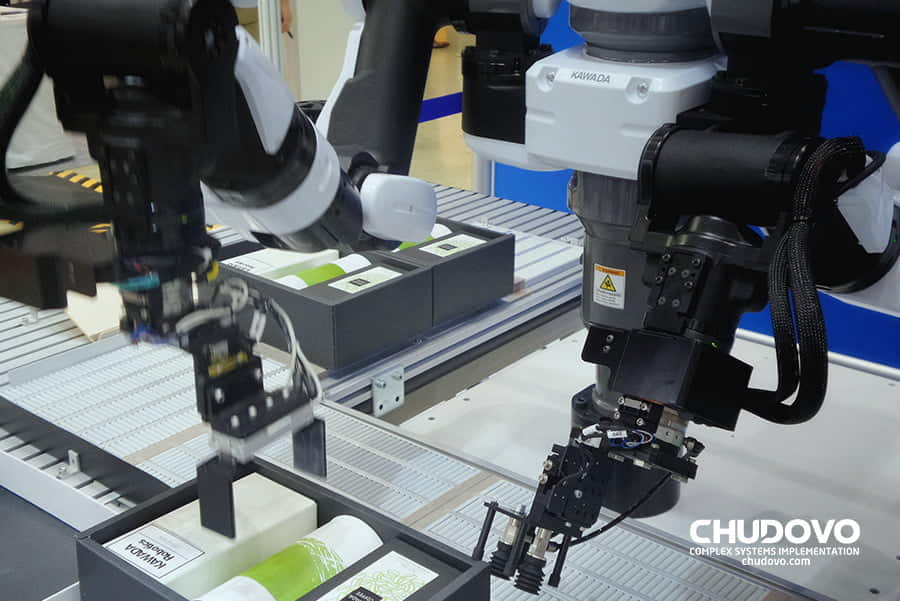
Features of ML Techniques & Artificial Intelligence Algorithms
Let’s now explore some key features and applications of ML and AI in healthcare, revolutionizing the way we approach precision medicine, medical imaging analysis, and more.
Precision Medicine:
One of the significant features of ML techniques and AI algorithms in healthcare is the advancement of precision medicine. By analyzing vast amounts of patient data, these technologies can help doctors tailor treatment plans to individual patients effectively. ML models can leverage patient-specific data, including genetics, lifestyle, and environmental factors, to provide personalized recommendations and predict the success rates of different treatment options.
Medical Imaging Analysis:
Another area where ML and AI have made significant contributions is medical imaging analysis. AI algorithms can quickly and accurately analyze radiological images such as X-rays, CT scans, and MRIs, enabling early detection and accurate diagnosis of diseases. This technology not only improves the efficiency of radiologists but also reduces the chances of human error in interpreting complex medical images.
Regulatory Issues and Barriers:
While ML and AI offer numerous benefits in healthcare, there are also regulatory issues and barriers that need to be addressed. The use of these technologies raises concerns about patient privacy, data security, and regulatory compliance. Institutions and policymakers need to establish clear guidelines and regulatory frameworks to ensure ethical and responsible use of ML and AI in healthcare.
Predictive Analytics and Early Disease Detection:
ML techniques and AI algorithms are well-suited for predictive analytics, enabling healthcare professionals to proactively identify individuals at high risk of developing certain diseases. By analyzing vast amounts of patient data, including medical records, genetic information, and lifestyle factors, these technologies can help detect diseases at an early stage when intervention is most effective. Early disease detection results in better treatment outcomes and improved patient prognosis.
Data Quality and Enhanced Decision Support:
Accurate and high-quality data is critical for the successful implementation of ML and AI algorithms in healthcare. By leveraging advanced data processing techniques, these technologies can enhance data quality and ensure reliable analysis. This, in turn, enables healthcare professionals to make more informed decisions, leading to improved patient care and outcomes.
Better Monitor Remote Patient:
ML and AI technologies facilitate remote patient monitoring, allowing healthcare providers to track patients’ health conditions and progress outside traditional healthcare settings. Through wearable devices and sensors, real-time data on vital signs, activity levels, and medication adherence can be collected and analyzed. This enables healthcare professionals to remotely monitor patients and intervene promptly if any potential health issues arise, leading to improved patient management and reduced healthcare costs.
Improved Accuracy and Time/Cost Savings:
ML and AI algorithms have the potential to significantly improve accuracy in medical diagnostics and reduce the reliance on manual interpretation. This leads to faster and more accurate diagnoses, reducing the chances of misdiagnosis and unnecessary medical procedures. Moreover, by automating certain tasks, these technologies can help save time for healthcare providers and reduce healthcare costs.
ML techniques and AI algorithms are poised to revolutionize the healthcare industry by offering innovative solutions in precision medicine, medical imaging analysis, regulatory compliance, predictive analytics, early disease detection, data quality, remote patient monitoring, improved accuracy, enhanced decision support, and cost savings. As healthcare professionals continue to harness the power of these technologies, patients can benefit from personalized treatment plans, better diagnostic accuracy, and more effective disease management. However, it is crucial to address regulatory issues and ensure ethical use to maximize the potential of ML and AI in healthcare while prioritizing patient privacy and data security.
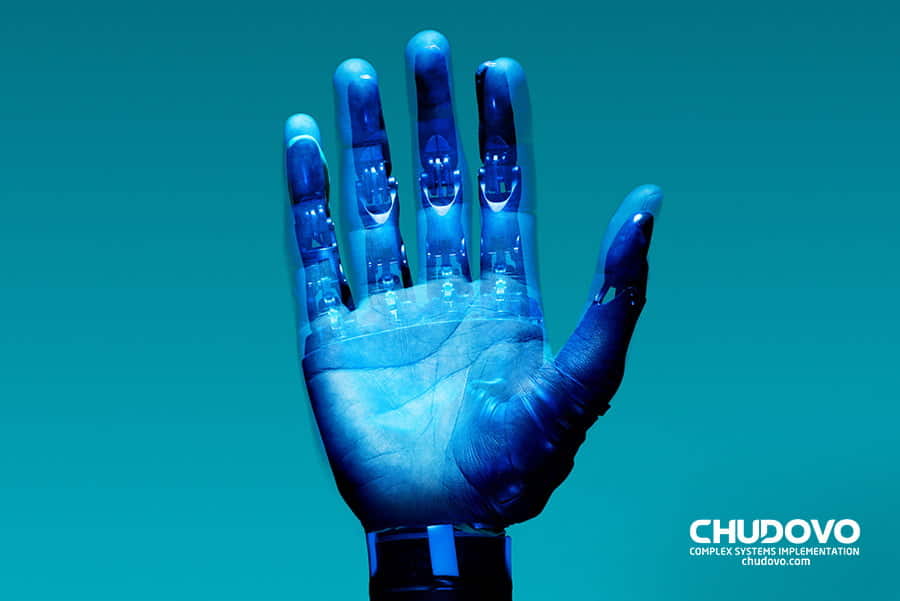
Challenges and Limitations of AI in Healthcare
As with any powerful tool, some challenges and limitations must be addressed to ensure its ethical and responsible use. In this section, we will explore four key challenges that the healthcare industry faces in adopting and implementing AI effectively.
Bias in the Data:
AI systems are only as good as the data on which they are trained. If the data contains biases or is not representative of the diverse populations it aims to serve, AI algorithms can produce inaccurate or unfair results. This bias can disproportionately affect marginalized communities, perpetuating healthcare disparities. Addressing bias in data and ensuring its fairness and inclusivity is essential for the responsible application of AI in healthcare.
Lack of Transparency:
Many AI systems used in healthcare are considered “black boxes” because they lack transparency in their decision-making processes. Healthcare professionals and patients alike find it challenging to understand how AI arrives at a particular diagnosis or treatment recommendation. Providing transparency in AI algorithms and making them explainable is crucial for building trust and acceptance within the healthcare community.

Certified engineers
Convenient rates
Fast start
Profitable conditions
Agreement with
EU company
English and German
speaking engineers
Regulation and Governance:
The rapid development and adoption of AI in healthcare have highlighted the need for clear regulations and guidelines. Currently, there is a lack of comprehensive frameworks that outline the ethical and legal boundaries for AI use in healthcare. Establishing proper regulation and governance is crucial to ensure the responsible deployment of AI technologies, protect patient rights, and avoid potential misuse.
Lack of Understanding:
While AI has the potential to bring significant benefits to healthcare, there is often a lack of understanding among healthcare professionals and patients about how AI works and its limitations. Unrealistic expectations and distrust can arise when the capabilities and limitations of AI are not effectively communicated. Bridging the knowledge gap through education and awareness programs is essential for successful AI implementation in healthcare.
As AI continues to make strides in transforming healthcare, addressing the challenges and limitations associated with its adoption takes center stage. Data privacy and security, bias in data, lack of transparency, regulation, and governance, and lack of understanding pose significant hurdles. By proactively working to overcome these challenges through robust policies, transparency initiatives, and educational efforts, the healthcare community can harness the full potential of AI to improve patient outcomes, enhance diagnostic accuracy, and streamline healthcare processes.
Takeaway
In conclusion, ML techniques and AI algorithms are transforming the landscape of medical diagnostics and treatment plans. From early disease detection to precision medicine, these technologies are revolutionizing healthcare by improving accuracy, providing decision support, and optimizing patient care. With continued advancements in AI, we can expect further breakthroughs and innovations, ultimately leading to enhanced patient outcomes and a healthier future.
FAQs
What is the potential of artificial intelligence (AI) in healthcare?
AI has the potential to revolutionize the field of healthcare by enhancing patient care, improving efficiency, and enabling more accurate diagnoses.
How can AI help in diagnosing diseases and creating treatment plans?
AI can analyze vast amounts of patient data in record time, including complex images such as X-rays or MRI scans. It can also leverage advanced algorithms and machine learning techniques to identify patterns and provide insights for effective diagnosis and treatment planning.
How does AI handle the overwhelming volume of data in healthcare?
AI systems have the capability to process and analyze large volumes of data quickly and accurately. By leveraging neural networks and deep learning models, AI can detect subtle patterns and make sense of complex medical data.
How can AI improve patient care?
AI can help healthcare professionals make informed decisions by providing insights and recommendations based on vast amounts of patient data. This can lead to personalized treatment plans, quicker interventions, and improved overall patient care.
Will AI replace healthcare professionals?
No, AI is not meant to replace healthcare professionals. Rather, it is designed to assist and support them in their decision-making process by providing insights and recommendations based on data analysis. The expertise and clinical judgment of healthcare professionals will always be crucial.
If you need an healthcare developers at the right price, contact Chudovo Today!




